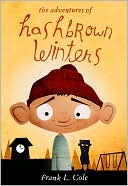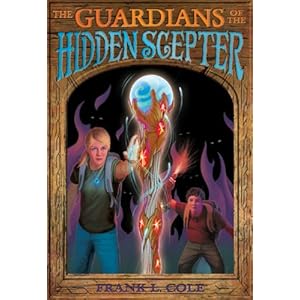by Annette Lyon
Knowing who your readers are is crucial. Your readers define your market and genre. Market and genre define where your book will be shelved (or indexed online) and therefore how potential readers will find you.
It also defines how you write your book.
Below are some basic genres and markets. The descriptions are very much generalized, but they'll at least give you an idea of how the publishing industry breaks things up.
Early Chapter Books
These are books young readers cut their teeth on. They're longer than picture books (but will still have some pictures), have larger fonts, and stick to pretty simple story lines. Books in this market include everything from the Arthur chapter books to the Frog and Toad series, Junie B. Jones, The Magic Tree House books, and so forth.
Middle Grade
Much longer books, few if any illustrations. Focused on emerging readers who can handle more complex stories and characters. Themes aren't too intense, and the protagonists are usually early teens. Middle grade has quite a range, from Diary of a Wimpy Kid and Dear Dumb Diary to more complex books like the Fablehaven series, Percy Jackson, and the Deltora Quest series, along with the early Harry Potter books. (As Harry ages, so does his market. The later books are clearly Young Adult.)
Young Adult
Older teens are the main characters, and with that, we get more difficult and complex stories and themes. That can mean more violence and other content (language, drugs, innuendo, etc.), but it doesn't have to. Often YA means longer books. Examples include The Hunger Games, My Fair Godmother, and The Maze Runner.
Speculative
This is a huge umbrella that covers several genres. In the most basic terms, "Speculative" means science fiction and fantasy. It can also include paranormal, horror, and other "otherworldly" stories. Within speculative you'll find sub-genres like dystopian, post-apocalyptic, high fantasy, low fantasy, and more. If you're writing here, you'll need to do research so you know what's out there and where you fit. Examples: Ender's Game, I Am Not a Serial Killer, and Mistborn.
Romance
The cardinal rule: the couple must end up together in a committed relationship. That doesn't mean we need to see an engagement or a wedding, but they need to be together, essentially "happily ever after."
You can certainly write stories where the couple doesn't get together. Such books sell well, but they're in a different genre (women's fiction or literary fiction). They cannot wear the label of "Romance."
Romance isn't all "bodice-rippers." It's a huge market (the best-selling genre by a mile). Included are category romances and stand-alone titles (find out which you write) and levels of "heat" from "sweet" (where the hero and heroine do no more than kiss) up to the really spicy (which can border on erotica) and everything in between. Examples of Romance writers: Danielle Steele, Georgette Heyer.
Mystery
In the same vein, a mystery must have the crime (usually a murder) solved by the end, or it's simply not a mystery. This genre has a big range of sub-genres, including culinary and cozy mysteries on one end and hard-boiled, intense (and possibly graphic) stuff on the other. As with Romance, if you violate genre conventions, you're going to end up with ticked off readers. Example: anything by Agatha Christie.
Thriller
In some ways, a thriller is the reverse of a mystery. In a mystery, we're trying to piece together clues to figure out who did it. In a thriller, we usually have a clue as to who the bad guy is, and we're trying to escape them or stop them from doing something horrible. Examples: The Hunt for Red October, The Da Vinci Code.
Women's Fiction
Somewhat of a broad term that encompasses literature that's often seen in book clubs. Features women and issues they face, but isn't Romance by genre terms. Examples: The Poisonwood Bible, The Help.
Of course, this is in no way an exhaustive list of genres or markets. In many cases, age-group markets are combined with genres, so you can end up with Young Adult Romance (most titles by Janette Rallison's books), Middle Grade Speculative (Percy Jackson), Young Adult Paranormal Romance (Twilight), and so forth.
Know your market and genre and then read it. Learn the ropes. Learn what's been done, learn what the readers expect. Learn the rules and which ones you can break (and why). Figure out what's old and what you can offer that's fresh.
Then get back to the keyboard and write!








